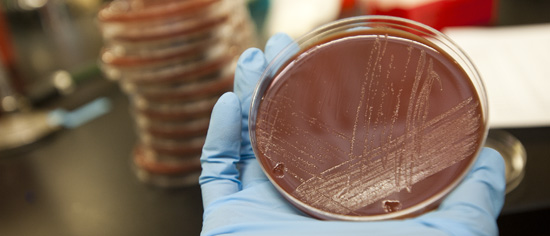Expand Medical Knowledge

The Chobanian & Avedisian School of Medicine’s research enterprise is among the largest and fastest-growing of any U.S. medical school, with more than 600 funded programs supported by more than $515 million overall from the National Institutes of Health.
These research programs provide an exceptional environment for basic science, clinical investigation and health-services–oriented research:
- Basic research takes place in some two dozen centers and institutes, where our scientists pursue knowledge at the cellular and genetic level and explore how to use new technologies for medical discovery.
- Clinical research includes all our field-based studies, including the world-famous Framingham Heart Study and our groundbreaking (and newsmaking) work on Chronic Traumatic Encephalopathy (CTE) as well as clinical trials, translational studies and more.
Of course, basic and clinical research often converge, as in the urgently important COVID-19 work that has become the current focus of our National Emerging Infectious Diseases Laboratories (NEIDL). One of two national biocontainment labs in the United States, NEIDL opened in 2012 to advance the science of emerging, potentially devastating pathogens such as the Ebola virus, H1N1 and mosquito-borne viral diseases, in addition to SARS-CoV-2, the virus that causes COVID-19. Within months of the pandemic’s outbreak, BUSM researchers had published more than 400 related research papers.
Donors can help expand medical knowledge in several key ways: by contributing to a center’s research fund, endowing a fund to provide support in perpetuity, or sponsoring professorships and postdoctoral research positions to recruit and retain the most promising researchers.
For more information on supporting research at the Chobanian & Avedisian School of Medicine, contact the Chobanian & Avedisian School of Medicine’s Development Office.